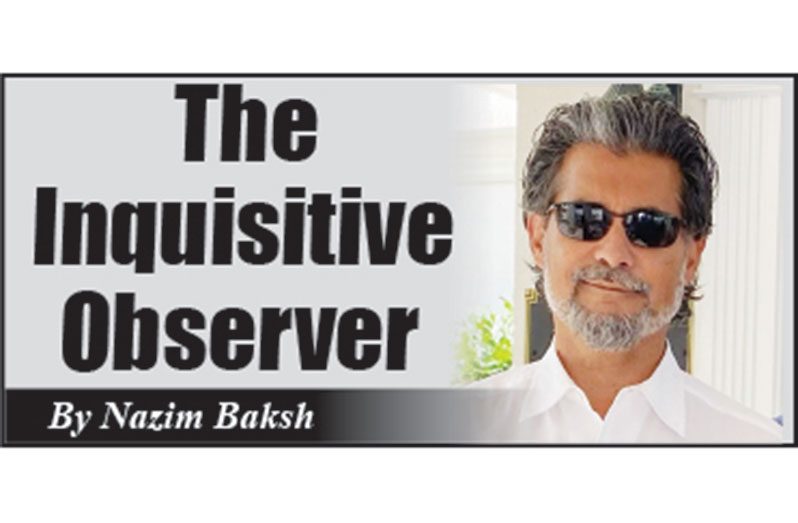THERE was a Mike Tyson vs Jake Paul-type showdown that happen in the world of news and information and it had weighty implications even for Guyanese far from the action.
There were no knock-out punches and no clear winner, but those who relied on social media platforms for their daily intake of world news certainly felt the sting.
The battle was not a Tyson vs Paul spectacle in a Dallas arena with 70,000 in attendance and another 282 million paid Netflix subscribers watching remotely. This showdown took place on the digital landscape between big tech giants such as Meta, Google, X, Amazon and Apple – companies that have an oversized bite of the global economy of information – and a number of tired, slow and old-fashioned media companies that have had a stranglehold over the dissemination of news for nearly half a century or more.
In the last week, La Vanguardia in Spain and The Guardian in the U.K. announced they would no longer be posting content on X, the social media platform formerly known as Twitter. After buying Twitter in 2022 for $44billion, Elon Musk laid off hundreds of employees whose job was to monitor content and weed out conspiracy theories that could prove harmless to the public.
The Barcelona based daily La Vanguardia described X as “a disinformation network” that allows the dissemination “of conspiracy theories and misinformation.” They labelled X as “toxic,” and a platform that promotes “hatred of ethnic minorities, misogyny and racism.” La Vanguardia accused X of allowing fake accounts to push dangerous conspiracies that proved harmful to the public with regard to devastating floods that claimed the lives of more than 200 people in the Valencia region.
The decision is likely to be costly for these papers and those who follow their lead. An average of two-thirds of the world’s population relies on social media for their news and information, traditional media organisations have long seen these platforms as a means to amplify their content and direct traffic to their online portals.
For example, the Canadian Broadcasting Corporation’s (CBC) The Fifth Estate has posted hundreds of investigative documentaries on YouTube; a handful were produced by me. While the CBC spent thousands of dollars to make a single documentary, The Fifth Estate has never received a penny from Google or its parent company, Alphabet Inc.
Google and Meta, on the other hand, make billions of dollars every year from content it did not produce. The formula is simple; free content attracts subscribers which transforms a free digital space into a vibrant marketplace. Meta generated $117B in revenues in 2023 ($23B net) by mixing free content on Facebook, Instagram and other platforms with ads for just about anything an average consumer might fancy.
The consequence of this arrangement is that mainstream media companies that produce factual content by trained professionals are being squeezed out of the market while tech giants become even more powerful, bold and assertive.
In an attempt to even the playing field, Canada enacted legislation in 2023 to temporarily bar Facebook and Instagram users from posting mainstream media content, a move that affected some 24 million Canadians who interact with those platforms.
These newspapers and a slew of established and powerful institutionalised media organisations such as the BBC, CNN and the New York Times are making an important point – factual content is not the same as fake, distorted and conspiratorial content.
However, before staking their claims on a moral high ground they might want to carefully consider the following: In the last week, millions of people worldwide saw with their own eyes a number of disturbing cell phone videos posted for free on social media platforms by independent eyewitnesses which proved that Maccabi Tel Aviv hooligans instigated and attacked Palestinian supporters in Amsterdam before and after a Europa League Football match against Ajax on Nov. 7.
The videos demonstrate that Maccabi fans shouted genocidal, racist and Islamophobic slogans which left five people seriously injured and led to 62 arrests. One Maccabi fan can be heard shouting, “There are no schools in Gaza because there are no children left.” In other videos, Israeli supporters can be heard shouting, “Let the IDF win,” “F*** the Arabs,” “F*** you terrorists” and “Sinwar die, everybody dies,” a reference to the Hamas leader who was killed in October.
Had it not been for the fact that social media allowed these uncensored and unedited videos to be posted, most people would have believed Reuters, AP, the New York Times, CNN and just about every pro-Western and pro-Israeli news organisation that falsely reported that it was Palestinian supporters in Amsterdam who went on an anti-Semetic rampage against Maccabi fans.
It should come as no surprise to anyone that a recent Gallup poll showed that a mere 31 per cent of Americans say they have a “great deal” or “fair amount” of confidence in the media to report the news “fully, accurately and fairly.” Fifty years ago, that percentage was 70 percent.
DISCLAIMER: The views and opinions expressed in this column are solely those of the author and do not necessarily reflect the official policy or position of the Guyana National Newspapers Limited



.jpg)









